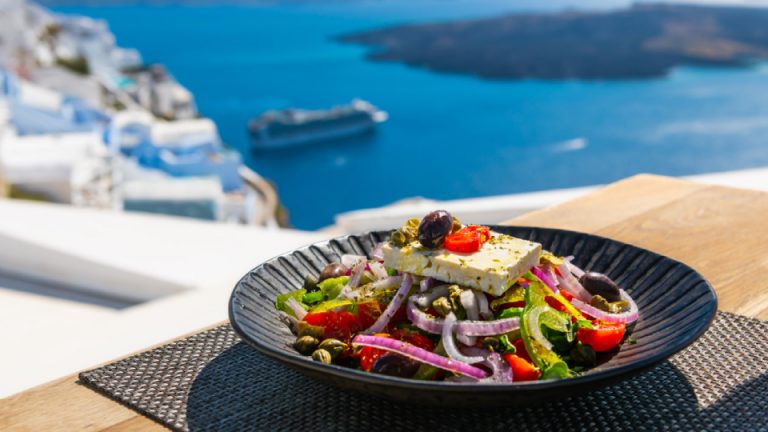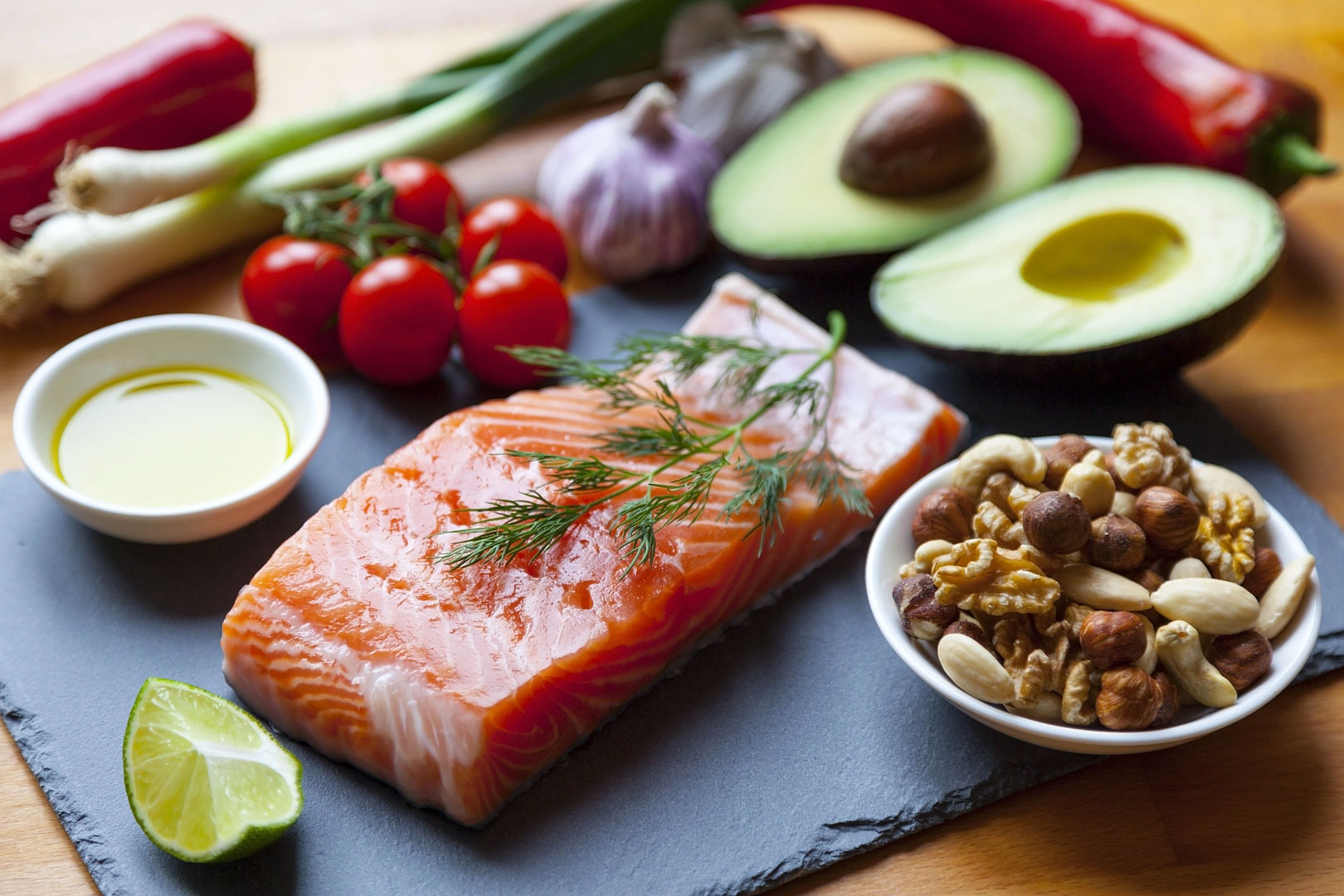Dubai
English
Request a call
Mediterranean diet

Among the many nutritional systems, the Mediterranean diet stands out for its simplicity, health benefits, and natural approach: it doesn't require strict restrictions, exclusions, or exhausting calorie counting — its essence lies in balance, variety, and respect for the body. This approach to eating has developed based on centuries-old traditions of Italy, Spain, Greece, and southern France, where robust health, longevity, and high activity levels are maintained into old age.
The diet is based on seasonal products, natural flavors, reasonable portions, and a focus on food quality. The Mediterranean diet is not only healthy but genuinely enjoyable: the vibrant colors of the dishes, aromatic spices, fresh herbs, and minimal processed ingredients turn each meal into a true ritual of self-care. Let’s take a look at what a Mediterranean diet weekly menu looks like and how it can easily fit into your usual lifestyle.
Core Dietary Principles
Before moving on to a specific schedule, it's important to understand the basic ideas of this system:- Vegetables and fruits: the foundation of the daily diet, providing fiber, vitamins, and antioxidants.
- Whole grains: bulgur, oats, quinoa, whole grain bread.
- Fish and seafood: the main source of protein, consumed more often than meat.
- Legumes and nuts: essential parts of the menu, offering long-lasting satiety and healthy fats.
- Olive oil: the main fat, rich in omega-3 and antioxidants.
- Dairy products: primarily in the form of yogurt and soft cheeses.
- Red meat and sweets: consumed very moderately and not daily.
- Drinks – primarily water, less often red wine and herbal teas.

Mediterranean Diet: 7-Day Meal Plan
To start comfortably, it's important to plan in advance what exactly will be on your table. Here's an example of a weekly meal plan that shows what a Mediterranean diet might look like: it's balanced in nutrients, easy to prepare, and diverse in flavors: Monday Breakfast: oatmeal with apple and walnuts Lunch: chickpea, tuna, and spinach salad Dinner: vegetable stew with bell pepper and bulgur Tuesday Breakfast: whole grain toast with avocado Lunch: lentil soup with herbs and thyme Dinner: baked trout with broccoli and lemon Wednesday Breakfast: Greek yogurt with honey and almonds Lunch: whole wheat pasta with stewed vegetables Dinner: omelet with tomatoes and fresh herbs Thursday Breakfast: feta cheese, cherry tomatoes, and rye bread Lunch: quinoa with roasted pumpkin and olive oil Dinner: salad with olives, cucumber, and boiled egg Friday Breakfast: banana with flax seeds Lunch: beans with brown rice and herbs Dinner: steamed chicken breast with zucchini and greens Saturday Breakfast: natural yogurt with berries Lunch: tomato soup with basil Dinner: baked mackerel with potatoes and broccoli Sunday Breakfast: omelet with bell pepper and onion Lunch: lentil salad with carrots and cheese Dinner: grilled vegetables with couscous and lemon dressing This 7-day menu helps build new habits, doesn't cause hunger, and requires no culinary experience. Each day can be adjusted to your taste and available ingredients.
What to Include in Your Diet: Healthy Highlights
To maintain interest in nutrition, variety is key. Foods that easily fit into the Mediterranean system and are available in our stores:- Vegetables and fruits: eggplants, tomatoes, spinach, pears, apples, oranges – rich in fiber and vitamins, they support digestion and immunity.
- Whole grains: oats, barley, bulgur, quinoa, buckwheat – provide long-lasting satiety and stable energy.
- Protein: fish (hake, mackerel, trout), seafood, chicken breast, turkey – sources of amino acids and omega-3.
- Legumes and nuts: beans, chickpeas, lentils, walnuts, and pine nuts – support heart health and metabolism.
- Healthy fats: olive oil, avocado, olives – strengthen blood vessels and help absorb vitamins.
- Fermented dairy products: unsweetened yogurt, ricotta, feta, Adyghe cheese – contain probiotics and calcium.

Mediterranean Diet in Russian Style: Menu
At first glance, it may seem that this diet is only suitable for residents of warm countries, but in fact, it fits perfectly into our reality. Fish can be replaced with pollock, cod, or hake, instead of exotic grains you can use buckwheat and pearl barley, and vegetables and greens are always available at the market. Here’s what a typical day looks like based on the adapted menu:- Breakfast: buckwheat porridge with greens and a boiled egg;
- Lunch: fish soup made from river fish with celery and carrots;
- Dinner: stewed vegetables with chicken breast and olive oil;
- Snacks: an apple, sugar-free yogurt, a few nuts.

Mediterranean Diet: Monthly Meal Plan and Long-Term Results
If you’ve decided to seriously change your habits, try creating a monthly meal plan. This will help solidify results, bring a sense of lightness to your body, and improve overall well-being. During this time, your taste buds will adapt, cravings for fatty and sugary foods will decrease, and cooking will become a familiar and joyful ritual. A pre-thought-out shopping list and cooking plan will save time and energy. Using prepared ingredients (like pre-cooked grains or portioned pieces of fish) will make the process easier.Why This Diet Works: Key Benefits
The Mediterranean diet is especially suitable for those who want to:- improve digestion;
- normalize weight without strict restrictions;
- reduce inflammation levels;
- support heart and vascular health;
- boost overall vitality and quality of life.

Fill out the form to book your consultation.
Your personal manager will contact you within 10 minutes and arrange a convenient time for your visit.














